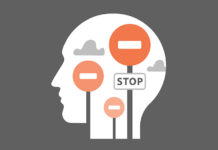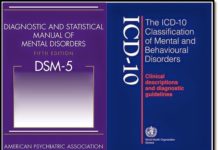Physical Restraint in Mental Health Units is Traumatising Women
From The Guardian: Recent research shows that one in five women and girls are physically restrained in mental health settings in England. There were nearly...
Meta-Analysis Finds Exercise Improves Cognition in Individuals with Schizophrenia
A new review, published in Schizophrenia Bulletin, examines the effects of exercise on cognition in individuals diagnosed with 'schizophrenia.' The results of the meta-analysis...
Psychologists Push For New Approaches to Psychosis: Part 2
The authors of the report expand upon the traumatic and sociopolitical factors underlying presentations of psychosis and “schizophrenia.”
The Virtual Couch: Is Online Therapy Going Viral?
From Alternet: Applications that provide online counseling, such as BetterHelp and Talkspace, are increasing in popularity. While some studies support the effectiveness of virtual therapy,...
Mental Illness Isn’t the Only Reason for Suicide
From The Age: Most public discussion and media portrayals of suicide assume that suicide is solely the result of mental illness such as depression and anxiety....
Knowledge of Other Cultures is Changing the Field of Psychology
From The Conversation: Human behavior and mental processes have long been thought to be universal. However, recent studies show that culture plays an important role...
Is Curing Patients a Sustainable Business Model?
From CNBC: A recent report by Goldman Sachs analysts questions whether curing patients, as opposed to providing them with chronic therapies, could pose a financial...
Recovery: Compromise or Liberation?
The 90s were labeled - rather optimistically - as the ‘decade of recovery.’ More recently, recovery has been placed slap bang central in mental health policy. Is supporting recovery pretty much good common sense? Or is the term being misused to pressure those suffering to behave in certain ways?
Meta-analysis Links Childhood Trauma to Psychosis Symptoms
The study results suggest that experiences of childhood trauma impact the development of symptoms associated with psychosis.
Should We Screen for Adverse Childhood Experiences?
One author outlines the foundations of Adverse Childhood Experiences (ACEs) research, addressing its dimensions, limitations, and potential future directions.
Trauma Blocks the Frontal Lobes – “Verbal Physiotherapy” Can Unblock Them
Trauma makes the speech centers of the brain shut down. This is why talking about abuse is so difficult: the words are blocked. If you reclassify trauma effects as trauma-strokes, and you adapt physiotherapy to take this clinical evidence into account, then you come up with Verbal Physiotherapy.
Time’s Up: Culture of Denial Impacts Mental Health of Sexual Abuse Survivors
Study finds that not believing sexual abuse survivors often leads to self-blame and mental health issues.
“Bewitching Science” Revisited: Tales of Reunited Twins and the Genetics of Behavior
In this article I will attempt to debunk one of the great “scientific” smoke and mirrors shows of the past half century—the claim that stories of reunited separated MZ (monozygotic, identical) twin pairs indicate that heredity plays a major role in causing human behavioral differences. These stories, which are often used to sell the false ideology of genetic determinism, have entered the public imagination in a way that academic research results never could. Here I will show that these stories provide no evidence whatsoever that (as yet undiscovered) “genes for behavior” influence human behavioral development.
This Is Why Your Mental Health Can Get Worse Around Christmas
In this piece for HuffPost UK, Sophie Gallagher highlights some of the common factors that harm people's mental health during the holiday season, including financial stress, loneliness,...
Interview With Black Lives Matter Cofounder Patrisse Khan-Cullors
In this interview for Vice, Black Lives Matter cofounder Patrisse Khan-Cullors discusses her efforts to fight for the civil rights of marginalized communities and to speak...
“Is Depression a Mental or Physical Illness?”
-Two Australian scientists discuss historical and current research into tentative links between inflammation, immune response and depression.
Stress Impacts Brain Development
Research by a team at the University of California in Berkeley (including noted stress researcher Robert Sapolsky) published research in Molecular Psychiatry that finds chronic...
Increasing Prevalence of Mood Disorders Among Teens and Young Adults
Depression, serious psychological distress, and suicide attempts have risen substantially since the early 2000s among young adults – what’s changed?
Developing Alternatives to the DSM for Psychotherapists
A new article suggests counselors and psychotherapists are dissatisfied with current diagnostic systems and outlines some potential alternatives.
Puerto Rico’s Mental Health Crisis (Podcast)
From The New York Times: Months after Hurricane Maria devastated Puerto Rico, the island is experiencing a severe mental health crisis. Public health officials say...
The Upside of Neuroticism
From Pacific Standard: A new study from the U.K. suggests that there may be an upside to neuroticism - some neurotic people live longer lives....
Psychotropic Medications Serve as Powerful Tools for U.S. Military, Imperialism
Ethnographic research sheds light on extensive psychopharmaceutical use by soldiers in post 9/11 U.S. wars.
How Problematic Assumptions Have Slowed Depression Research
-Belgian psychologist Eiko Fried argues that depression is not a discrete disease, but a cluster of independent symptoms that reinforce each other.
Baycrest Creates First Canadian Brain Health Food Guide
From Medical Xpress: Baycrest scientists have developed the first Canadian Brain Health Food Guide, which provides older adults with guidelines and advice on maintaining a healthy...
In Defense of Healthy Depression
With the increasing medicalization of depression, and as more and more physicians see the treatment of depression as falling under their purview, it is imperative to distinguish between actual clinical depression and "healthy depression" — the adaptive and expectable responses to distressing life events that signal a need for rethinking one's life and recalibrating one's self-perceptions and emotions.





























